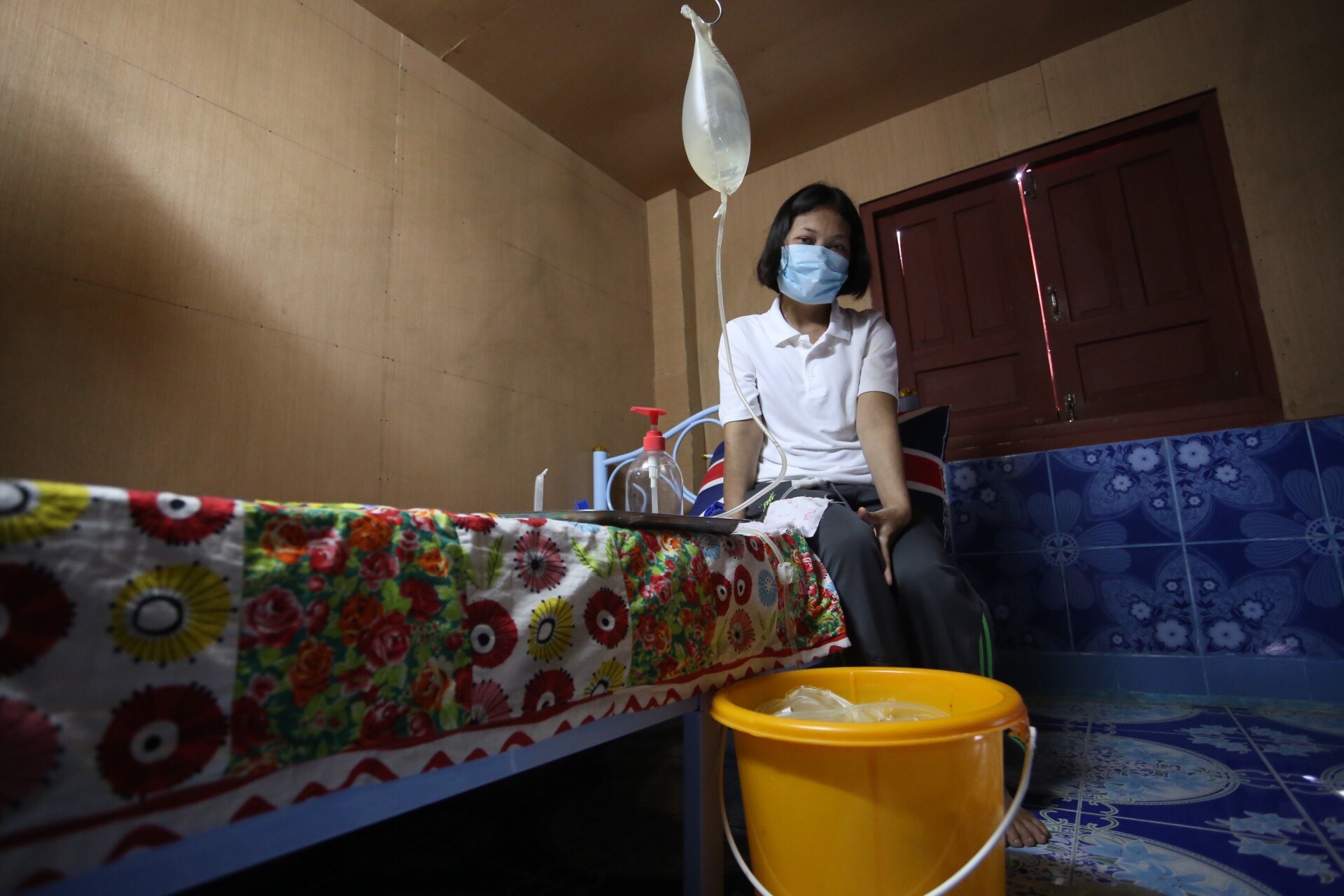
- Home
- DescriptionNews
Increase CAPD access for patients with kidney disease

Increase CAPD access for patients with kidney disease
Since 2008, peritoneal dialysis has been provided to patients with kidney disease under Universal Coverage Scheme (UCS).
To include the treatment in UCS benefits package was not an easy task at the beginning. It was challenged by many people who doubted the effectiveness of peritoneal dialysis and its high cost, which would place financial pressure on the Thai government.

Kanitsak Chantrapipat, Director Bureau of Secondary and Tertiary Care Management, National Health Security Office (NHSO) recently highlighted the keys to resolve those challenges --- building up cooperation across multi sectors, increasing the capacity of human resources and health facilities, and implementing the right financial model.
NHSO discussed Thailand's experience in setting a strategy to increase patients' access to renal replacement therapy (RRT) during an international webinar on 10 February.
Held by NHSO, the event was joined by more than 60 experts from international countries, including the United States, Singapore, South Korea, and Indonesia, who came to learn the recipes of Thailand's success.
Policy push
Renal replacement therapies such as peritoneal dialysis and hemodialysis have been available in Thailand since 30 years ago. But access to the therapies was limited in the past because of the treatments' high cost and insufficient supplies in health facilities. Only a few patients could access the treatment, leaving many low-income patients with financial constraints to have a little survival chance.
A few years after the introduction of UCS in 2002, NHSO began working with patient groups to include renal replacement therapy (RRT) in UCS benefits package. The therapies were already provided to beneficiaries of Social Security Scheme and Civil Servant Medical Benefits Scheme at the time, raising critics toward inequitable access to health services.
Responded to NHSO and patients group, the Thai cabinet approved the request to add renal replacement therapy (RRT) in UCS benefits package and started providing them in 2008.
The priority was given to Continuous Ambulatory Peritoneal Dialysis (CAPD), a cost-effective treatment option that requires fewer human resources and fits the Thai government's financial circumstance.
It also suits the contexts of Thai patients, many of whom reside in rural areas and have difficulties traveling to hospitals to get hemodialysis.
Patients could perform CAPD at their homes. They are charged “zero” as NHSO covers up the dialysis fluid and logistic cost to deliver it to patients’ houses. If patients with end-stage renal disease have contraindications to CAPD treatment, they can request hemodialysis without charging any fees.
Change perception
However, both physicians and patients prefer hemodialysis at the time. They falsely perceived that CAPD was not an effective treatment. Changing their perception was very critical. To do that, NHSO worked with health networks to provide CAPD training to physicians and nurses.
In 2007, nurses from hospitals piloting CAPD care attended a 5-day intensive course at Srinagarind Hospital, Khon Kaen University, to tune their attitude and ideas about CAPD. Some nurses visited Singapore General Hospital and Tan Tock Seng Hospital a year later to gain experience on the CAPD system.
Thailand Nursing Council also launched four-month CAPD training courses for nurses across Thailand.
Similar, nephrologists from piloted hospitals participated a 2-day intensive meeting to understand the government's CAPD policy. Some of them visited Hong Kong to learn how a similar policy was established and successfully implemented.
Patient with kidney diseases formed up a group called Kidney Friend-Club Network to assist patients and their families performing CAPD in local communities and health care units.

CAPD access increases
Three and a half years after the introduction of peritoneal dialysis in UCS, more than 340 nurses joined CAPD training while 345 physicians were registered for the Tenchkoff catheter insertion workshop.
The number of patients receiving peritoneal dialysis increased from 212 to 8,033 between January 2008 and June 2011. Peritoneal dialysis units increased from 23 to 111 units at the same period of time.
Moreover, the ratio of patients receiving CAPD increased to 54% of all patients receiving renal replacement treatments, while hemodialysis accounted for 46%.
In 2020, more than 32,330 patients received CAPD under the government's 9.7-billion-baht supporting funds.
Despite several obstacles, said Kanitsak, the provision of peritoneal dialysis in UCS has been gradually improving.
The number of peritoneal dialysis centers, nurses, and patients' access to care is promising. He also gave credit to all partners that make this happen---Public Health Ministry, NHSO, patients groups, health providers, doctors, and nurses who put their effort into improving the conditions for patients with kidney disease.

